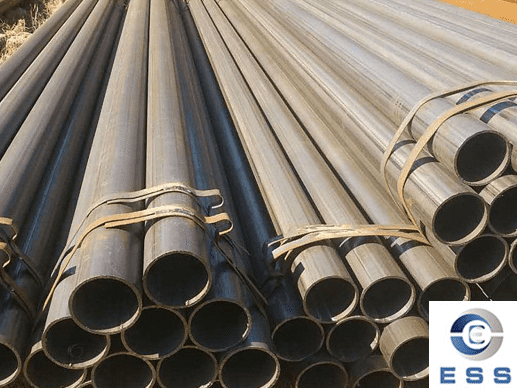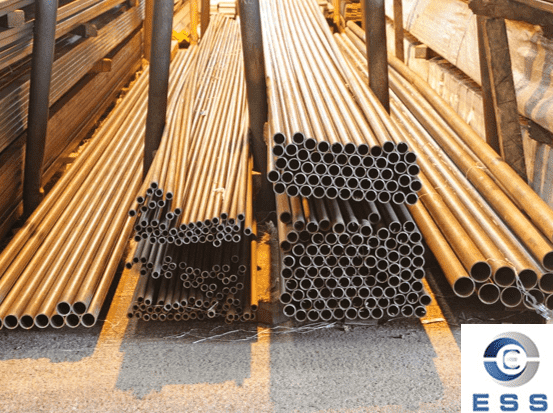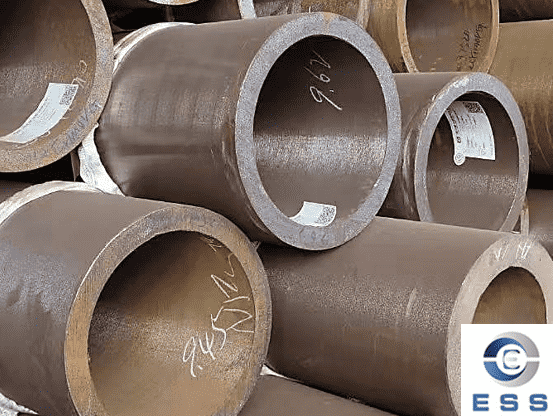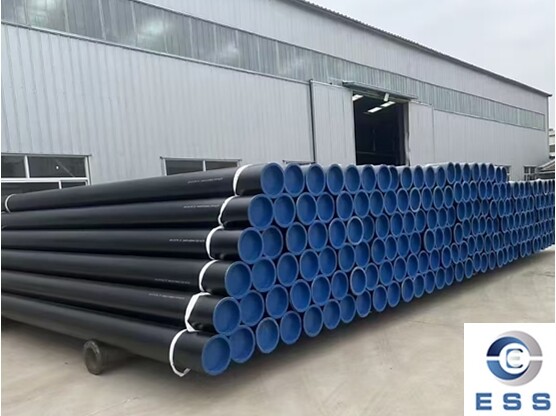
API 5L PSL1 is a steel pipe material
standard developed by the American Petroleum Institute (API), primarily used
for oil and natural gas transportation. This standard ensures the steel pipe
possesses sufficient strength, toughness, and corrosion resistance to withstand
complex transportation environments and demanding operating pressures.
API 5L PSL1
API 5L PSL1 material generally refers to a
carbon steel grade. "PSL1" stands for Product Specification Level 1.
This is a set of specific performance and quality requirements for the API 5L
standard.
This steel pipe has strict specifications
for chemical composition, mechanical properties, weldability, and
non-destructive testing to ensure its safety and reliability in practical
applications.
PSL1 Seamless Carbon Steel Pipe
The PSL1 standard requires that seamless
carbon steel pipe undergo tensile testing at room temperature and meet specific
mechanical property requirements. These requirements include tensile strength,
yield strength, elongation, and impact energy.
PSL1 seamless carbon steel pipe is
typically used to transport fluids such as oil and natural gas, requiring high
corrosion resistance and pressure resistance.
Furthermore, since these fluids often
involve high temperatures and pressures, the pipe also requires high resistance
to these temperatures and pressures.
1. Chemical Composition
|
Chemical composition(Max.)
|
C
|
Mn
|
P
|
S
|
V
|
Nb
|
Ti
|
|
Seamless pipe
|
0.28%
|
1.20%
|
0.03%
|
0.03%
|
a,b
|
a,b
|
b
|
|
Welded pipe
|
0.26%
|
1.20%
|
0.03%
|
0.03%
|
b
|
b
|
b
|
|
Note
|
a.Nb + V ≤ 0.06%, b.Nb + V + Ti ≤ 0.15%
|
2. Mechanical Properties
The mechanical properties of PSL1 vary
depending on the grade:
|
Pipe grade
|
Pipe body of seamless pipes
|
|
Yield strength
|
Tensile strength
|
Elongation
|
|
MPa (psi) min
|
MPa (psi) min
|
% min
|
|
B
|
245(35 500)
|
415(60 200)
|
c
|
|
X42
|
290(42 100)
|
415(60 200)
|
c
|
|
X46
|
320(46 400)
|
435(63 100)
|
c
|
|
X52
|
360(52 200)
|
460(66 700)
|
c
|
|
X56
|
390(56 600)
|
490(71 100)
|
c
|
|
X60
|
415(60 200)
|
520(75 400)
|
c
|
|
X65
|
450(65 300)
|
535(77 600)
|
c
|
|
X70
|
485(70 300)
|
570(82 700)
|
c
|
Note: The minimum elongation Af1 specified
in “c” should be determined according to the formula described in the
specification
3. Inspection and Testing
Compared to PSL2, PSL1 has fewer testing
requirements: impact (Charpy) testing is generally not required, and
non-destructive testing (NDT) is not mandatory. The mechanical and chemical
properties of PSL1 are generally minimum standards and are not suitable for use
in extreme conditions or for high-specification pipelines.
4. Applications
Oil and Gas
API 5L PSL1 seamless carbon steel pipe is
widely used in oil and gas pipeline systems, particularly in applications where
safety and durability are paramount.
These pipes are not only capable of
withstanding high pressures and high flow rates in oil and gas transportation,
but also maintain stable performance in harsh environments and corrosive media.
Refineries and Chemical Plants
API 5L-B PSL1 steel pipe is also commonly
used in refineries, chemical plants, and other related industrial sectors for
the construction and maintenance of various fluid conveying systems.
Its superior mechanical properties and good
weldability ensure excellent connectivity and overall performance in complex
pipeline networks.
Differences Between API 5L PSL1 and PSL2
Seamless Carbon Steel Pipes
1. Standard Requirements
PSL1 and PSL2 have different quality
control requirements defined in the API 5L standard. Simply put, PSL2 has more
stringent technical specifications than PSL1, including chemical composition,
mechanical properties, and manufacturing processes.
2. Production Control
During the production process, PSL2-grade
steel pipe undergoes more stringent quality inspections and testing to ensure
stable and reliable product performance. This includes tighter dimensional
tolerances, surface finish, and non-destructive testing.
3. Inspection and Testing
PSL2-grade steel pipe undergoes more
rigorous inspections and testing before shipment. For example, hydrostatic
testing and non-destructive testing are all designed to ensure product quality
meets higher standards.
4. Specifications: API 5L PSL1 vs. PSL2
|
Standard
|
Steel Grade
|
Outer Diameter
|
Wall Thickness
|
|
API5L PSL1
|
B, X42、X46, X52,
X56, X60, X65, X70
|
21.3-1067mm
1/2”-42”
|
2-150mm
|
|
API5L PSL2
|
BN, X42N, X46N, X52N, X56N, X60N, BQ,
X42Q , X46Q, X52Q, X56Q, X60Q, X65Q, X70Q, X80Q, X90Q, X100Q
|
21.3-1067mm
1/2”-42”
|
2-150mm
|
FAQ
1. What Is The Relationship Between PSL1
Carbon Steel Pipe and Seamless
Steel Pipe?
PSL1 carbon steel pipe is generally
seamless. PSL1 carbon steel pipe generally refers to seamless carbon steel pipe
that meets the ASTM A106/API
5L standard and is commonly used in high-pressure, high-temperature
applications (such as oil pipelines).
2. What Are PSL1 and PSL2 Materials?
PSL1 and PSL2 represent two product
specification levels, not specific materials.
Common materials used under this standard
include carbon steel (carbon content ≤ 0.26%) and
low-alloy steel (with added elements such as Cr and Mo).
Summary
API 5L PSL1 seamless carbon steel pipe is a
common industrial transmission pipe with stable performance, reasonable cost,
and a comprehensive range of specifications. It is the most common and
cost-effective steel pipe, primarily used for oil and natural gas
transportation.













 Eastern Steel Manufacturing Co.,Ltd not only improve product production and sales services, but also provide additional value-added services. As long as you need, we can complete your specific needs together.
Eastern Steel Manufacturing Co.,Ltd not only improve product production and sales services, but also provide additional value-added services. As long as you need, we can complete your specific needs together.










